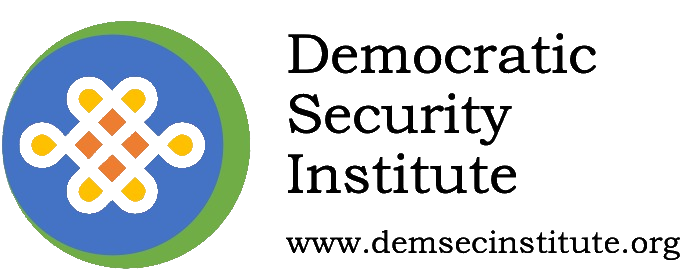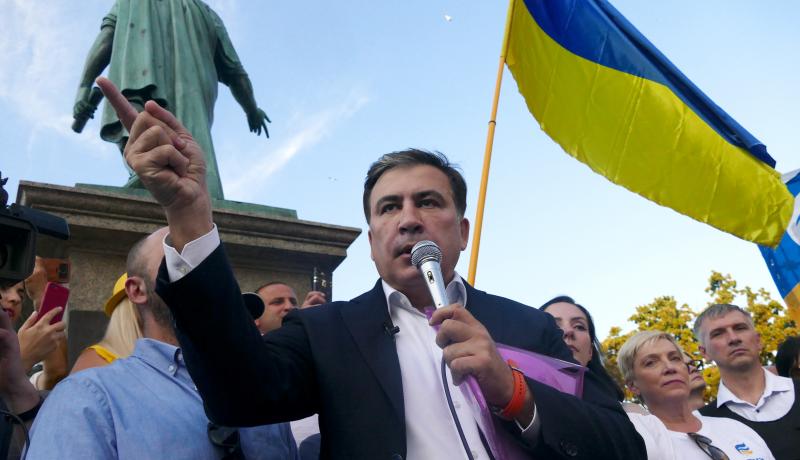Max Fras explains why Ukraine and Georgia need to nurture homegrown talent rather than import politicians
In May, Georgia’s ex-president Mikheil Saakashvili, who fled his homeland in 2013 while facing charges of abuse of power, was given an important job in Ukraine. President Volodymyr Zelensky had proposed him as deputy prime minister, but opposition to the move in the president’s own party resulted in Saakashvili being made leader of the National Reform Council.
This post marked his second comeback in Ukraine. Only five years ago, he had been granted Ukrainian citizenship to become governor of the Odessa region.
He quit that job after a year and, having protested against the corruption schemes of then president Petro Poroshenko in the region, he was stripped of his citizenship and deported from Ukraine in 2017. He managed to get back into the country which had adopted and then rejected him, leading to a standoff in Kyiv between his supporters and police who tried to arrest him.
Saakashvili is the model of the ephemeral international politician who embodies the fascination with foreign expertise that persists in Ukraine and the wider eastern Europe. Some countries in the region crave reform and the electorate is inclined to look abroad for the right politician to provide an instant solution to long-standing problems.
Ukraine, re-embracing Europe and radical reform after the 2014 Euromaidan revolution, opted for bulk imports of foreigners for political office. Between 2014 and 2016, Ukraine had Georgian and Lithuanian cabinet members as well as an American-born finance minister. All three were granted Ukrainian citizenship on the same day, upon their nomination as ministers.
Soon after, Saakashvili was nominated as Odessa’s governor and received Ukrainian citizenship. The fashion for Georgian reformers did not stop there. In the same period, Ukraine embraced Georgians as deputy ministers, the head of the national police force, a deputy prosecutor-general and a deputy head of the anti-corruption agency. A number of Polish nationals also found their way to top positions.
The careers of these international politicians reveal the weakness of the civil service in the post-Soviet space and the false allure of apolitical technocracy. On the surface, the reasoning behind such international nominations may appear sound. In the era of ‘democracy fatigue’, an aura of apolitical competence is a sought-after quality. Most of the nominees are renowned for their achievements and qualifications at home. Independent of local interest groups and long-standing corrupt practices, they are expected to help ‘drain the swamp’. Furthermore, the belief that foreign expertise is superior, still pertinent in parts of eastern Europe, helps bolster their credentials.
In reality, imported politicians usually serve the agendas of the real decision-makers, the billionaire businessman and politician Bidzina Ivanishvili in Georgia and presidents Poroshenko and Zelensky in Ukraine, who call the shots.
None of the international nominees has any political capital in their new homelands. A case in point is that of Salome Zourabichvili, a French diplomat of Georgian ancestry, named by Saakashvili as his first foreign minister in 2004. She lasted for just over a year, only to set up a political party which failed to attract voters.
Despite her lack of political standing, she won the presidency in 2018 by a slim margin, a success generally credited to the support of Ivanishvili, who helped put the entire state apparatus behind her campaign.
Among Ukraine’s many international politicians, only Saakashvili was an independent political player, and then only briefly. The political party he set up failed to get a single representative elected, and in the recent parliamentary elections, he endorsed another party.
In the absence of a local party base, international appointees are easy to dispose of. They provide their patrons with a buffer between them and voters who get tired at the lack of tangible progress on economic development and anti-corruption measures.
This fascination with international politicians is unlikely to benefit Georgia or Ukraine in the long run. In both countries, politicians and state institutions have low rankings for trust, and political parties have low membership.
Installing international politicians and categorizing them as technocratic experts aggravates this problem, distancing constituents and communities from government. Thirty years into their regained independence, Ukraine and Georgia would do better to put their faith in home-grown political talent and assure proper democratic accountability for their politicians. Growing a competent and independent civil service would allow them to rely on the expert knowledge of talented individuals without undermining democracy at home.
AUTHOR: Max Fras is a Eurasia Democratic Security Network Fellow at the Tbilisi Centre for Social Sciences
The paper was initially published by Chatham House.

